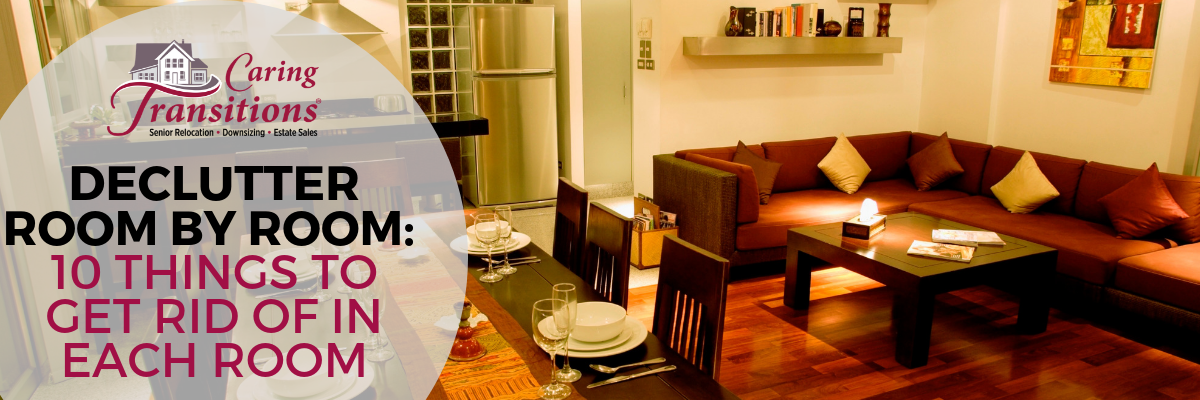
Clutter can quickly sneak into every room of your home. Each room should have designated spaces for everything that belongs in the room. We have tips to help you decide what should stay and what should go in your bedrooms, the living room, as well as the kitchen and dining room.
Bedrooms:
- Pillows that are no longer full or comfortable
- Loose papers
- Tangled, broken, discolored or unwanted jewelry
- Clothes you never wear
- Excess or old hangers
- Old gadgets and electronics
- Excess ties in your closet
- Forgotten items stored under the bed
- Junk from the nightstand or dresser junk drawer
- Old t-shirts and white undershirts
Space Saving Suggestions:
- Upgrade your nightstand to a multi-use with lots of drawers and spaces for clothing and other essentials.
- Beautiful decorative storage containers in small sizes are a great way to hide small items and add color to a room when placed on a table or dresser.
- Take advantage of the foot of the bed by placing a storage bench or set of small ottomans in the space for extra storage.
Living Room:
- Extra Candles
- DVDs, CDs, and VHS
- Worn blankets or throws
- Throw pillows that have lost their shape
- Old magazines
- Ripped, torn, stained or worn rugs
- Knick knacks, odds and ends, and unnecessary decorative items
- Remotes to old devices
- Broken or worn furniture
- Electronics that are not commonly used
Space Saving Suggestions:
Kitchen & Dining Room:
- Rusted or broken utensils
- Duplicate utensils, tools, or appliances
- Storage containers with missing lids
- Rarely or never used extra dishes
- Extra or old cleaning supplies
- Broken or chipped cups, plates, or glasses
- Rarely or never used small appliances
- Extra table linens
- Excess dining table décor
- Canned goods and spaces that are outdated or unlikely to be used
Space Saving Suggestions:
- Use wall-mounted storage to make the most of wall space by mounting rows of racks.
- Use a cart in the kitchen or dining room to expand your work and storage area without taking up a large amount of floor space.